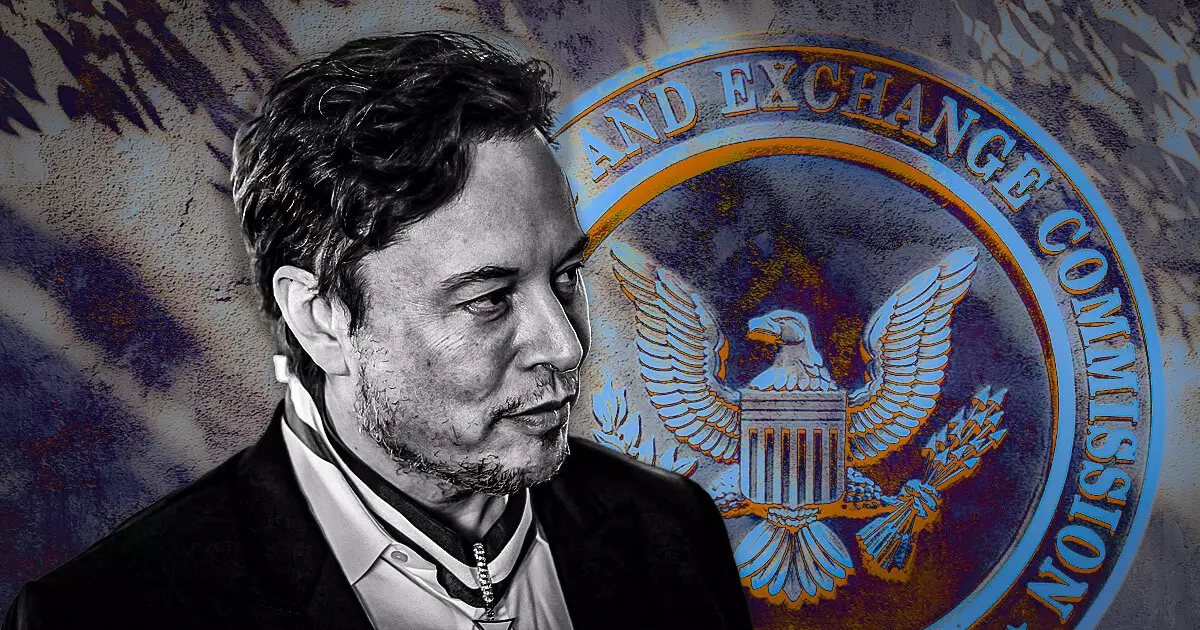The Department of Government Efficiency (DOGE), spearheaded by Elon Musk, has taken a daring approach by focusing its investigative lens on the US Securities and Exchange Commission (SEC). This move, clearly articulated in a recent post on social media platform X, signals an audacious initiative aimed at unveiling inefficiencies and unethical behaviors within this pivotal regulatory body. By actively soliciting the public for insights regarding waste, fraud, and abuse related to the SEC, DOGE is not merely introducing transparency but also reimagining the traditional interplay between government efficiency and oversight.
What makes DOGE’s approach particularly noteworthy is its direct appeal to the public for information. This call to action underlines an innovative strategy that transcends conventional government methods. The agency’s outreach, urging individuals with knowledge about the SEC’s inner workings to come forward, demonstrates a commitment to crowdsourcing accountability. Such transparency, while commendable, invites scrutiny. The conduct of an agency that is vested with substantial regulatory power raises critical questions about its operational integrity, especially when the public is invited to act as a whistleblower.
Despite these bold initiatives, DOGE’s efforts have not been without contention. Critics, including notable figures like Judge Tanya Chutkan, have expressed apprehensions regarding the sweeping reforms and personnel cuts that are being enacted. This pushback indicates a growing concern about the actual impact of such measures on regulatory efficacy. While reducing waste is a crucial aim, the ramifications of hastily applied reforms on the regulatory framework could inadvertently cause more harm than good.
The reaction from the crypto community has been one of cautious optimism mixed with apprehension. Paul Grewal, Coinbase’s Chief Legal Officer, has brought attention to the SEC’s past legal defeats, suggesting that a policy should be enacted to reimburse legal expenses for firms that successfully contest the SEC’s actions. This appeals to the broader need for a regulatory environment that upholds fairness and accountability, particularly in the evolving arena of digital assets. The legal entanglements surrounding cryptocurrencies such as Cardano (ADA) and XRP highlight the complex and often contentious relationship between emerging technologies and regulatory frameworks.
As DOGE embarks on its investigation, the outcome could set a significant precedent for future interactions between governmental bodies and the cryptocurrency sector. The potential to evaluate and reform how the SEC approaches cryptocurrency regulation presents an opportunity to reassess a system that many feel has inadequately addressed the nuances of digital asset management. Advocates hope that insights gained from DOGE’s efforts will cultivate a more informed and responsive regulatory practice that prioritizes investor protection without stifling innovation.
In sum, the intersection of DOGE’s initiative and the SEC’s regulatory framework represents a pivotal moment for both government efficiency and the cryptocurrency industry. The implications of this investigation could resonate far beyond immediate operational changes within the SEC, potentially shaping the future landscape of digital asset regulation in the United States.


Leave a Reply